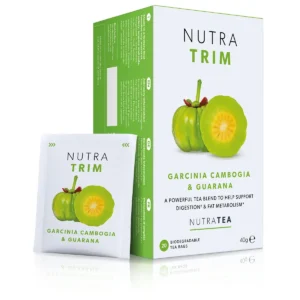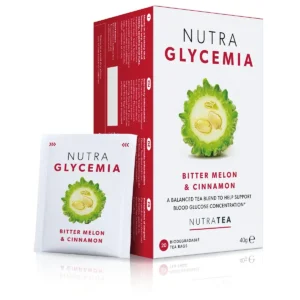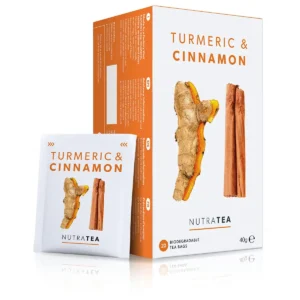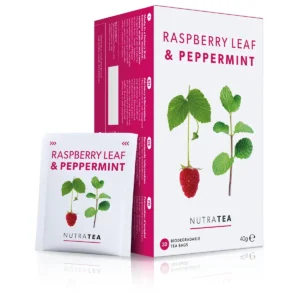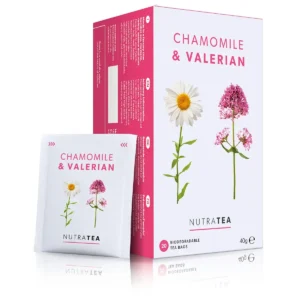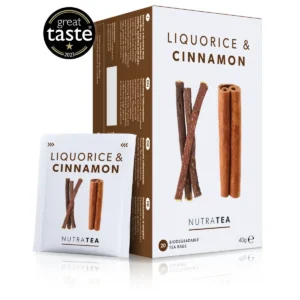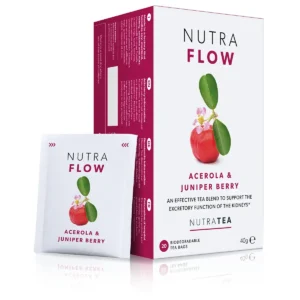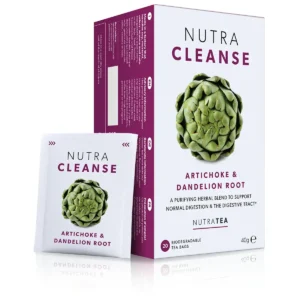NutraBlog
What type of herbal tea is good for diabetes?

Herbal tea and diabetes can help manage this condition if integrated correctly. While it’s not a standalone, it can be transformative if incorporated with a healthy lifestyle.
Learn about how herbal tea is good for diabetes and how it can help your insulin levels in this post.
How is herbal tea and diabetes related?
Well, if you have diabetes or are at high risk of type 2 diabetes, herbal tea can be a fantastic drink to consume. It’s sugar-free and has many health benefits (depending on the tea). The keywords here being sugar-free.
Herbal tea and diabetes can go hand in hand as it’s these drinks are low in calories and do not impact blood sugar levels. Depending on the herbal infusion, many bioactive compounds, such as antioxidants, anti-inflammatory agents, and more, work to help manage your blood sugar and insulin.
What is the best herbal tea for diabetes?

There’s no “best” tea for diabetes. Herbal tea for diabetes is entirely subjective. It all depends on your flavour preference, how you drink it and the time of day. With that said, there are a few ingredients in herbal teas that are not just taste-worthy but also highly beneficial for managing or preventing diabetes:
Green tea
Green tea has many benefits due to its power-packed antioxidant content. But with diabetes, some research suggests it may lower inflammation levels, increase insulin sensitivity, and help regulate glucose levels in the blood—yet more research is needed.
Otherwise, green tea contains zero calories and no sugar, greatly aiding weight loss, health, and well-being. Maintaining a healthy weight will likely improve blood pressure, cholesterol, energy levels, and insulin sensitivity.
Stock up on: NutraTrim a low caffeine vegan friendly formulation consisting of green tea and guarana. This tea supports weight management and fat metabolism.
Bitter melon
This tropical fruit isn’t always the first flavour that would spring to the mind of many people with diabetes. Surprisingly, it’s tasty, healthy and sugar-free. It’s high in Vitamin A, supporting your vision and skin health. It’s also widely known to lower blood sugar levels and haemoglobin A1c. A 3-month study conducted on 24 adults with diabetes revealed that taking 2000mg of bitter melon a day significantly reduced blood sugar and haemoglobin A1c levels.
Stock up on: NutraGlycemia, a tea containing 30% bitter melon, which helps manage blood sugar, lipid, and weight levels.
Turmeric
This golden yellow spice is popular in Eastern medicine and a go-to cooking ingredient for many cuisines. It is also great for herbal teas. In addition to its well-known benefits, such as helping fight cancer cells, being an anti-inflammatory agent for arthritis, and supporting kidney health, turmeric is starting to gain more attention when it comes to prediabetes and managing diabetes.
There’s a compound called curcumin in turmeric, which has been heavily researched as opposed to the turmeric itself. One study looked at people who were at high risk of having diabetes and who took curcumin for 9 months, compared to a placebo control group, who were less likely to develop the condition.
Curcumin and other compounds in turmeric are also linked to reducing liver issues, complications of diabetic neuropathy, inflammation, and cholesterol.
Stock up on: Turmeric and cinnamon a caffiene-free herbal tea helps support digestion, blood glucose levels, and liver health.
Peppermint
Peppermint tea can be a cool and refreshing herbal infusion for people with diabetes. Peppermint tea and diabetes have some links such as having a high antioxidant content which helps reduce the risk of complications of this condition caused by oxidative stress. It also supports digestion, which can help manage blood sugar.
Stock up on: Raspberry leaf and peppermint tea which supports digestion and is packed with free radicals to fight off antioxidants.
Chamomile
Chamomile is a highly beneficial herbal tea for diabetes. It can have a calming and anti-inflammatory effect on the body. It’s thought to enhance insulin sensitivity and help lower or regulate blood glucose levels.
Stock up on: Chamomile and Valerian, a soothing, caffeine-free herbal tea that helps support your immune and digestive systems and helps with insulin metabolism.
Cinnamon
Cinnamon and diabetes can work well together, especially in tea. This low-calorie sweet alternative to sugary drinks may help with management at meal times or in between them. In particular, cinnamon contains compounds such as cinnamaldehyde, which often mimics insulin, helping improve the body’s insulin sensitivity.
Stock up on: Liquorice and cinnamon, a caffeine-free herbal tea that supports the immune system, cardiovascular health, and digestion.
Black tea
Black tea contains polyphenols that may help reduce blood glucose levels after meals. It’s also thought that black tea might improve insulin sensitivity and the body’s ability to use insulin.
Stock up on: NutraFlow, a herbal tea that contains 20% black tea and supports your body’s defences.
Fenugreek
There’s research that shows that fenugreek seeds may help lower the blood glucose levels of people with type 1 and type 2 diabetes. It also has compounds such as saponins, diosgenin, galactomannan and saponins, which are inflammatory.
Stock up on: Fenugreek and Fennel, an herbal tea that is not just for mothers but for all genders, supporting your physical and mental well-being.
Dandelion root
Dandelion root contains two bioactive compounds, chicoric and chlorogenic acid, that might help lower blood sugar levels. They also have anti-oxidative and anti-inflammatory properties, allowing you to improve metabolism and insulin sensitivity.
Stock up on: NutraCleanse a herbal tea that contains dandelion root and helps support digestion and detoxification.
The bottom line on herbal tea and diabetes
Overall, diabetes and herbal tea can work well together. Herbal tea is low in calories if it contains none, has no sugar, and often has formulations packed with health benefits, allowing for better management of conditions like diabetes.
Even if you’re not diabetic, it’s always good to drink a variety of herbal teas to lower your risk of developing certain conditions and support blood sugar management.
They’re refreshing, low in calories, and full of health benefits, so why wouldn’t you try them?
If you want to add more into your diet, check out our post on the best herbal teas for diet support.

